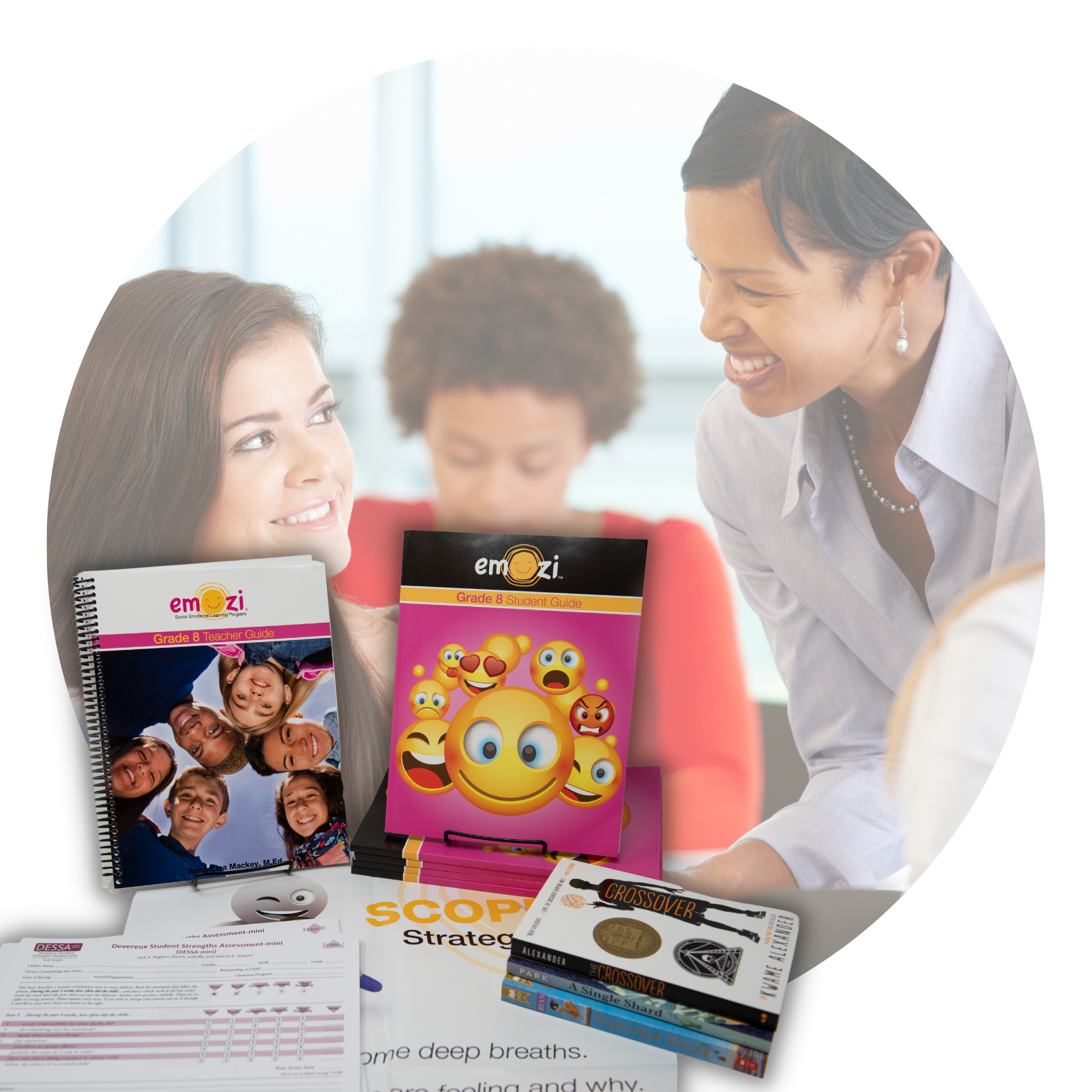Life Skills Education
Charter School Networks
Learn More About Preschool to Grade 5
Peek Inside Grades 6-8
Get to Know Grades 9-12
Contact our team for a custom proposal for your charter school.
Charter school networks face unique challenges that wellness and life skills programs can help address.
Social and emotional wellness can help charter schools reach their educational development goals. Here’s how:
Student Achievement:
Concern: Charter schools must often meet certain performance metrics to retain their charter.
Role: Research shows that students with better emotional regulation and social skills perform better academically. PATHS® and Emozi® can improve students' ability to concentrate, persevere in facing challenges, and employ effective study strategies.
Diverse Student Populations:
Concern: Many charter schools serve diverse student populations, including students from various socio-economic backgrounds and those with unique learning needs.
Role: PATHS® and Emozi® can foster an inclusive classroom environment, teach empathy and respect for diversity, and provide tools to address personal and community challenges.
Student Behavior and Discipline:
Concern: Addressing disruptive behavior can be challenging, with schools needing to balance discipline with support.
Role: PATHS® and Emozi® can teach students self-regulation, conflict resolution, and problem-solving skills, reducing the incidence of behavioral issues. This can lead to fewer disciplinary actions and a more positive school climate.
Teacher Retention:
Concern: Charter schools sometimes struggle with high teacher turnover due to various challenges, including behavior management and work-related stress.
Role: Implementing PATHS® and Emozi® can support educators by giving them the tools to manage classroom dynamics and address their emotional well-being.
School Climate:
Concern: Creating a positive school environment where students feel safe, supported, and engaged is a priority for charter networks.
Role: PATHS® and Emozi® can foster stronger relationships among students, staff, and faculty, leading to a more collaborative and supportive school culture.
Parent and Community Engagement:
Concern: Given their distinct nature, charter schools often emphasize fostering strong ties with parents and the surrounding community.
Role: PATHS® and Emozi® programs can extend beyond students, offering tools and training sessions for parents and community members, leading to better home-school connections and community support.
Mental Health Concerns:
Concern: Increasingly, schools are recognizing students' mental health challenges, from anxiety and depression to the effects of trauma.
Role: While PATHS® and Emozi® aren’t a replacement for professional mental health interventions, they can provide students with coping mechanisms, resilience-building tools, and a platform to discuss and understand their feelings.
Preparation for Post-Secondary Success:
Concern: Charter schools aim to prepare students for success beyond K-12, whether in higher education, vocational pursuits, or the workforce.
Role: PATHS® and Emozi® teaches skills like goal-setting, teamwork, effective communication, and adaptability – all of which are vital for success in post-secondary settings.
Funding and Resource Limitations:
Concern: Charter schools sometimes operate with tighter budgets and fewer resources than traditional public schools.
Role: By addressing behavioral issues, improving academic performance, and enhancing school climate, PATHS® and Emozi® can indirectly help charter schools make the most of their resources and potentially attract more funding or support.
Implementing a robust SEL program can address many of charter schools' immediate concerns and pave the way for long-term student and charter school success!



